7 Tips for Extending the Lifespan of HVAC Equipment
Posted on by WestAIR Heating & Cooling

When it comes to weather, Minnesota is a place of extremes. Our harsh, bitterly cold winters and hot, humid summer days make a functioning furnace and air conditioner crucial to a comfy home. Follow these tips for extending the lifespan of HVAC equipment to get the most out of your system.
Schedule Preventative Maintenance Twice Annually
Have your system professionally serviced before each heating and cooling season for a thorough tune-up, cleaning, and maintenance service to ensure peak performance and efficiency. Your technician will also catch minor issues to prevent costly repairs later on, as well as help you decide if it’s better to repair or replace.
But don’t wait for maintenance service or a total breakdown to have your system inspected. If you notice strange sounds or smells, decreased efficiency or performance, or any other warning signs, call your local HVAC professionals to diagnose and repair the issue before it gets worse.
Have Ductwork Professionally Cleaned Every Other Year
Dirt, dust, pollen, and other debris naturally settle inside your ductwork over time. This buildup not only impacts airflow and efficiency, but it also becomes a breeding ground for bacteria. As your HVAC unit pumps air to the home, these contaminants get blown out with it and decrease your indoor air quality.
Schedule professional duct cleaning service once every two years to help maintain air quality and reduce stress placed on the system.
Maintain a Clean Air Filter
Clogged filters decrease airflow, forcing the system to work harder and experience a higher level of wear and tear. They’re also the number one cause of breakdowns. Remember to clean or change your HVAC system’s air filter every month.
Take Care of the Condenser Unit
While A/C condenser units are designed to withstand the elements, they’re not invincible. Inspect your condenser for any damage or debris buildup on occasion, especially after severe storms and instances of hail. Additionally, give the unit two to three feet of space to easily and efficiently draw in air. Keep the unit and surrounding space clean and clear of obstructions as well as grass clippings, leaves, branches, dirt, and other debris.
Check the Drainage Pipe Regularly
HVAC systems feature a PVC pipe on the indoor unit that leads outside to drain excess condensation. Serious damage to this outlet line can result in expensive repairs, so inspect yours regularly for blockages, debris, and any other issues. Be sure to do so more frequently in winter due to the potential of ice or snow deposits.
Invest in a Programmable Thermostat
Being strategic with your thermostat can help lower utility bills and stress on your system. However, constantly adjusting the temperature can have the opposite effect. With a programmable thermostat, you can preset temperature and humidity levels over multiple days without worrying about manual adjustments.
Ease Stress on the System in Other Ways
Give your HVAC system a break whenever possible to maximize its performance and useful life. For more information, check out our helpful guides to optimizing HVAC efficiency in the winter and summer.
Heating and cooling systems contribute up to half of a home’s energy consumption, and we rely on them throughout the year in our state. Use this guide to extending the lifespan of HVAC equipment to keep the air in your home clean and comfy for years to come.
Backed by over 30 years of industry experience, locally owned and operated WestAIR has the knowledge and expertise for all your heating, cooling, and indoor air quality needs. Contact us to learn more about our services.
This entry was posted in AC,Air Conditioning,Cooling,Duct Cleaning,Energy Savings,Fall,Furnace,Health Tips,Heating,Humidity,HVAC Maintenance,Indoor Air Quality,Tips,Winter and tagged A/C, A/C maintenance, A/C Tips, Air conditioner maintenance, Air filters, Condenser Unit Maintenance, Duct cleaning, Energy savings, Energy-Saving HVAC Tips, Extending the Lifespan of HVAC Equipment, Furnace Maintenance, Furnace Tips, Homeowner Education, HVAC Education, HVAC Maintenance, HVAC Maintenance Tips, HVAC tips, Preventative Maintenance, Programmable thermostat
Understanding and Controlling Indoor Humidity
Posted on by WestAIR Heating & Cooling

The hottest time of year is upon us, and we all know how uncomfortable Minnesota’s humidity can be. Our home should be a cool, comfy escape on hot summer days. To help, we put together this guide to understanding and controlling indoor humidity.
Understanding the Basics: Humidity Vs. Relative Humidity
Simply put, humidity measures the amount of water vapor in the air. However, since warm air can retain more moisture than cold air, we look at relative humidity (RH): the amount of water vapor present relative to the total amount the air can hold at the given temperature. RH illustrates how the air actually feels and affects our comfort. The ideal RH for a home is typically between 40 and 60 percent.
Methods for Controlling Indoor Humidity
Essentially, high levels of indoor RH occur when excess moisture enters the home but can’t escape. Use these tips for controlling indoor humidity and keep your home cool and cozy this summer.
Run Your Air Conditioner
By replacing warm air with cooler air, A/C systems naturally reduce indoor humidity. Again, cool air retains less moisture, so running your air conditioner helps decrease RH in the home.
Don’t Introduce Extra Moisture to the Air
More moisture means more humidity. Certain everyday activities naturally release moisture in the air and should be altered to control RH:
- Avoid meals that require boiling water, or at least cover the pot whenever possible. Use the kitchen exhaust fan when cooking.
- Take colder, shorter showers to avoid the steam of hot water, and run your exhaust fan during and for 5 to 10 minutes afterwards.
- Hang laundry outside to dry so the evaporated moisture doesn’t get trapped in the home.
Provide Proper Ventilation & Exhaust
Remember, higher humidity happens when moisture can’t escape, so make sure that it can:
- On nice days, open up the windows to let stale, humid air out and fresh air in.
- Change or clean your HVAC system’s filter monthly for optimal cooling and ventilation.
- Ensure laundry, kitchen, and bathroom exhaust fans are clear of dust and debris.
- Schedule an A/C tune-up with your local HVAC specialist to ensure your system runs at peak performance.
Fix Plumbing Leaks
Leaky pipes and fixtures can damage your home and also add moisture to the air, so get them fixed ASAP. Warning signs include water stains on ceilings or walls, wet spots, and irregularly high water bills. You can also wrap exposed pipes with insulators to prevent condensation.
Seal Leaks in Ductwork
Well designed, properly installed ductwork distributes air evenly throughout the home. Leaks create a pressure imbalance and can let humid air in or cold air out. Have your ducts professionally cleaned and inspected to make sure your system circulates air properly.
HVAC Solutions
Humidity can crack or warp wood, promote rot in the home’s structure over time, and increase accumulation of dust and other irritants to asthma and allergy sufferers. Luckily, there are supplemental HVAC solutions to consider if indoor humidity is a big concern:
- Whole house dehumidifiers work in conjunction with your HVAC system to remove excess moisture.
- Portable dehumidifiers can be placed in bathrooms, basements, and other specific locations known to house extra moisture.
- Air exchangers exhaust excess humidity and stale indoor air and deliver filtered outdoor air inside simultaneously.
As we use our homes as a welcome escape from the heat, clean and cool air becomes a must. Use this guide to controlling indoor humidity to keep your family comfy throughout the dog days of summer. And remember to rely on the residential HVAC experts for all your air conditioning and indoor air quality needs.
Contact us today to schedule service and learn more.
This entry was posted in AC,Air Conditioning,Cooling,Duct Cleaning,Health Tips,Indoor Air Quality,Tips and tagged air conditioning, Air filters, Controlling Indoor Humidity, Cooling Mistakes, Cooling Season, Cooling Tips, Duct cleaning, Family Health, Home Cooling, Homeowner Education, Homeowner Tips, Humidity, HVAC Education, HVAC Safety, HVAC tips, Indoor air quality, Indoor humidity, Preventative Maintenance, Summer Cooling, Summer HVAC Tips, Understanding Humidity
Energy-Saving HVAC Tips for Summer Cooling
Posted on by WestAIR Heating & Cooling

So far, June has given Minnesotans multiple occasions to fire up the A/C. With the dog days of summer yet to come, plenty more hot and humid days await. But don’t sweat it – WestAIR is here to help! We put together these energy-saving HVAC tips to help minimize your utility bills this cooling season.
Prevent Issues Later with Professional Service Now
Having an HVAC technician inspect, service, and clean your system now helps ensure peak performance and prevent costly repairs down the road. If you haven’t already, contact your local HVAC professional about the following services.
- Annual preventative maintenance: Give your system a tune-up before the season to ensure optimal performance and efficiency. During service, the technician can also catch small issues before they become expensive repairs and help you decide if it’s time for an upgrade.
- Duct cleaning: Ductwork should be cleaned annually as dirt, pollen, hair, dust, and other particles collect inside and reduce indoor air quality over time. They can also clog up the system if left long enough, decreasing its efficiency and increasing energy bills.
Optimize A/C Performance with Tips Around the Home
You don’t have to shut down your HVAC system and suffer through the heat to cut costs. Instead, follow these simple tips and get the most out of your A/C this summer.
- Keep vents clean and clear. Blocking vents with rugs, furniture, and other items decreases efficiency. Make sure cool air can circulate freely, and vacuum vents regularly to clean away dust, dirt, and other debris.
- Maintain a clean air filter. Filters prevent debris from getting into your HVAC unit and naturally become dirty or clogged, which adds stress onto the system. To avoid issues, change (or clean, if re-usable) your filter monthly.
- Seal the home. Don’t let cool air escape or heat enter whenever possible. Caulk any cracks or seams around the home; lock windows shut to ensure a tight seal; draw blinds and curtains to prevent any natural heating from sunlight.
- Be smart about electronics. Unplug chargers, small appliances, and other electronics when they’re not in use. Also, avoid placing heat-generating devices like lamps and TVs near thermostats – the heat can make it seem like the room is hotter than it really is and trick the thermostat into working harder to cool the home.
- Grill outside or plan cold meals. Cooking in the oven or on the stove produces heat and can raise the temperature in your kitchen by up to 10 degrees. Take advantage of the summer weather and fire up the grill, or plan some cold meals like salads and sandwiches.
- Use ceiling fans. Set ceiling fans to spin counterclockwise so they blow air straight down. This will keep cool air low and create a wind chill effect, allowing you to turn the thermostat up a few degrees.
- Consider installing a programmable thermostat. While proper thermostat management can help keep bills low, constantly changing the thermostat can impact your HVAC system’s efficiency and health. Programmable thermostats let you pre-set custom temperature and humidity levels for multiple days instead of monitoring it manually.
Lower Utility Bills with Strategic Water Use
According to the U.S. Department of Energy (DOE), 18 percent of your home’s energy consumption comes from water heating. Try these water use strategies to help cut utility costs throughout the summer months.
- Wash clothes with cold or warm water. According to the U.S. Environmental Protection Agency (EPA), water heating accounts for 90 percent of the energy used by your washing machine. Avoid washing with hot water whenever possible. Also, line-dry laundry outside to save more energy and reduce indoor humidity.
- Take cold(er) showers. Hot showers require more energy, and the steam they produce increases humidity. Take colder, shorter showers to lower costs and help maintain indoor air quality.
- Water the lawn and garden at dawn or dusk. Water usage tends to increase in the summer, especially outdoors due to lawn, garden, and landscape watering. Do these tasks in the early morning or at dusk to prevent the water from quickly evaporating in the summer heat. This will help cut costs and keep your yard and garden healthy.
With July and August still ahead, we know the cooling season is far from over here in Minnesota. Use these energy-saving HVAC tips to minimize utility costs while keeping your home cool and cozy this summer. And for all of your heating and cooling needs, rely on the residential HVAC experts at WestAIR for thorough, high-quality service.
Contact us today to schedule service and learn more.
This entry was posted in AC,Air Conditioning,Cooling,Duct Cleaning,Energy Savings,Tips and tagged air conditioning, Air filters, Cooling Mistakes, Cooling Tips, Duct cleaning, Energy efficiency, Energy efficient, Energy savings, Energy-Saving HVAC Tips, Energy-saving tips, Family Health, Home Cooling, Homeowner Education, Homeowner Tips, HVAC Education, HVAC Maintenance, HVAC Mistakes, HVAC Safety, HVAC tips, Indoor air quality, Preventative Maintenance, Summer Cooling, Summer HVAC Tips
Common Summer HVAC Mistakes to Avoid
Posted on by WestAIR Heating & Cooling

Summer weather is finally upon us, and we know that 2020 won’t be like every other year. Air conditioners play a vital role here in Minnesota and keeping them running properly will be even more important this time around. To help, we gathered a list of common summer HVAC mistakes to avoid as you keep your home feeling cool and cozy.
Neglecting Regular Maintenance
Regular HVAC maintenance helps prevent inconvenient breakdowns that leave you without cool, comfortable air and with an expensive repair to get it back. Avoid these mistakes to help keep your system running smoothly all season long.
- Not scheduling preventative maintenance. Don’t wait until you need an HVAC professional to call one. Have a regular preventative maintenance check early on to promote optimal performance throughout the summer.
- Running a system with dirty ducts. Dirt, dust, pet hair, and other harmful particles settle into your ductwork over time and get blown into the air you and your family breathe. Left long enough, they can also clog the system, forcing it to work harder and hiking up your utility bills as a result. Annual duct cleaning is vital to the health and efficiency of your HVAC system, as well as indoor air quality.
- Not keeping a clean filter. Just like ductwork, dirty or clogged air filters cause added stress on your HVAC system and decreased air quality. Plan to change your air filter (or clean if re-usable) monthly.
Having an Oversized System
Bigger isn’t always better when it comes to HVAC. Proper air conditioning will circulate cool air and remove humidity simultaneously and evenly – if the unit is too big, it will cool the home quickly without removing enough moisture from the air. As a result, you won’t feel comfortably cool and may turn the thermostat even lower, working the system harder and increasing energy use.
If your A/C isn’t cooling the home how you feel it should, consult your local HVAC experts about possibly upgrading to a right-sized system.
Closing Unused Air Vents
Some homeowners worry about cooling rooms that aren’t used on a daily basis. However, as mentioned above, properly sized systems are designed to evenly distribute cool air to the entire home. While it may seem logical to close unused vents to focus on cooling high-traffic areas, closing unused air vents decreases system efficiency and increases its workload.
Improper Thermostat Management
Altering the thermostat setting can be a touchy subject in the home, and doing so can impact the efficiency and health of your system. Remember to avoid these common mistakes.
- Don’t crank the thermostat. You may be tempted to turn the temp extra-low to cool the home quickly, but this method actually decreases efficiency and adds stress onto the system. Be patient. Set the temperature to a comfortable level and let it run at its optimal rate.
- Don’t pay to keep an empty house cool. No need to use extra energy to keep the house comfy if no one’s home. Turn the thermostat up when you’re gone for work or out of town, and turn it back down when you return.
- But don’t turn the system off. Turning the system completely off forces it to work harder to cool the home when it’s fired back up. Unless you’re leaving for an extended trip, keep the A/C running at a higher temperature.
Consider Installing a Programmable Thermostat
Programmable thermostats let you customize and set temperature and humidity settings for multiple days, eliminating the need to manually monitor them throughout the day. Contact us to learn more about optimizing your summertime cooling performance and schedule with a new smart thermostat.
Crowding/Obstructing the Outdoor Unit
Outdoor units need to easily draw in air to operate efficiently.
Clear any clutter and obstructions within two to three feet of the unit and be
sure to keep it clean of grass clippings, dirt, and other debris throughout the
summer.
Not Properly Sealing the Home
It’s a pretty simple concept: Keep cool air from escaping and heat from entering the home. Be mindful of these simple mistakes that impact your home’s cooling comfort and costs.
- Neglecting leaks and drafts. Inspect windows, doors, and exterior walls and seal or caulk any small cracks or gaps that could let cool air out and warm air in.
- Leaving windows unlocked and uncovered. Even shut windows can have small leaks, so lock them to ensure a tight seal. During the day, use curtains and shades to block direct rays of sunlight from heating your home.
Not Managing Indoor Humidity
Humidity plays a crucial role when it comes to home comfort and air quality. While HVAC systems pull moisture from the air, there are many things you can do to help reduce humidity in your home, such as taking cold(er) showers, using exhaust fans, and installing a dehumidifier to work in conjunction with your air conditioner.
Minnesota summers provide amazing opportunities to get outside and enjoy nature’s beauty, but we all know the importance of having a cool, comfortable home to relax in. Keep these common summer HVAC mistakes in mind to help avoid any issues with your system this cooling season.
As your residential HVAC experts, WestAIR is proud to reliably serve all your heating and cooling needs. Contact us today to schedule service and learn more.
This entry was posted in AC,Air Conditioning,Cooling,Duct Cleaning,Energy Savings,Indoor Air Quality,Repairs,Tips and tagged air conditioning, Air filters, Cooling Mistakes, Cooling Tips, Duct cleaning, Family Health, Family Safety, Home Cooling, Home Safety, Homeowner Education, Homeowner Tips, HVAC Education, HVAC Maintenance, HVAC Mistakes, HVAC Safety, HVAC tips, Indoor air quality, Preventative Maintenance, Summer Cooling, UV Light, WestAIR Heating & Cooling
Tips for Controlling Spring Allergies at Home
Posted on by WestAIR Heating & Cooling
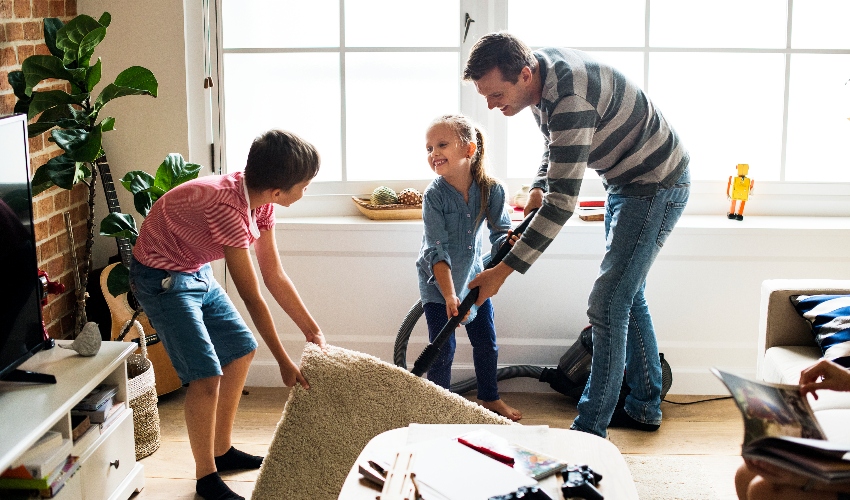
Seeing warmer weather and longer days is bittersweet for allergy sufferers. Spring may be in the air, but so are pesky allergens. As we spend more time in our homes during the COVID-19 pandemic, indoor air quality becomes more important than ever. Use these helpful tips for controlling spring allergies at home to stay healthy and comfortable.
Change Shoes and Clothing After Being Outdoors
Controlling allergies begins with limiting exposure to allergens. Limit your time outdoors whenever possible. If you do venture out, don’t wear the same clothing and shoes around your home. Dirt, dust, pollen, and other irritants can cling to you and your wardrobe. Avoid tracking them around by changing as soon as you return home.
Dust, Vacuum, and Mop Regularly
Dust and allergens will settle on the surfaces of your home. Try to clean them at least weekly, and more often if you are leaving windows and doors open.
Have Your Ductwork Cleaned
Air ducts transport fresh air between your home and HVAC system, and over time will collect dust, pollen, and other airborne particles that travel through them. Having them cleaned annually is vital to indoor air quality. Schedule a professional duct cleaning service to help ensure you’re ready for the season.
Maintain a Clean Air Filter
The air filter blocks airborne irritants from getting into your system. However, it becomes dirty and less effective over time. If left long enough, the filter can also become clogged and make your system work harder, causing higher bills and faster wear and tear. Change (or clean it if re-usable) your air filter monthly to keep the system running properly.
Install an Air Cleaner
The name says it all. An air cleaner uses a filter to trap up to 97 percent of airborne bacteria, mold, dander, and other pollen-sized irritants. It can also eliminate viruses, kill germs, and neutralize odors and fumes.
Invest in Ultraviolet (UV) Light Air Purification
Breaking through an organism’s cell wall to destroy its DNA, UV light rays prevent that organism from reproducing and causing illness. UV technology has been around for over 100 years, and many homeowners today utilize it as a highly effective way to kill harmful bacteria, mold, and viruses in the home.
These systems conveniently work in conjunction with your current HVAC system. WestAIR is an authorized dealer of BreatheCLEAN UV air purification systems. Contact us to learn more or to schedule your UV light system installation.
Consider an Air Exchanger
Letting fresh air into the home can be beneficial, but it brings allergens along with it. An air exchanger solves this by exhausting stale indoor air and excess humidity while also delivering a continuous flow of filtered outdoor air inside. Installing a programmable thermostat will help you maintain indoor comfort without constantly managing temperature. And again, remember to keep your filter clean!
Controlling spring allergies at home comes down to limiting exposure to allergens. It sounds simple, but don’t be fooled into thinking the home is a completely irritant-free safe space. While we may be spending less time outdoors than usual this spring, use these tips to maintain indoor air quality and keep allergy symptoms at bay.
WestAIR’s HVAC experts are here for all your heating and cooling needs. As we continue helping our customers prepare their homes for the spring and summer during this time, our team is taking extra precautions to protect the health and safety of themselves and everyone they service. We prioritize your comfort and satisfaction in all that we do. Contact us today to schedule service and learn more.
This entry was posted in AC,Air Conditioning,Cooling,Duct Cleaning,Health Tips,Indoor Air Quality,Spring,Tips and tagged Air cleaner, air conditioning, Air exchanger, Air filters, Family Health, Family Safety, Heating, Home Heating, Home Safety, Homeowner Education, Homeowner Tips, HVAC Safety, HVAC tips, Importance of Indoor Air Quality, Indoor air quality, Spring Allergies, Spring Cleaning, Spring Heating and Cooling, UV Light
Indoor Air Quality Solutions
Posted on by WestAIR Heating & Cooling
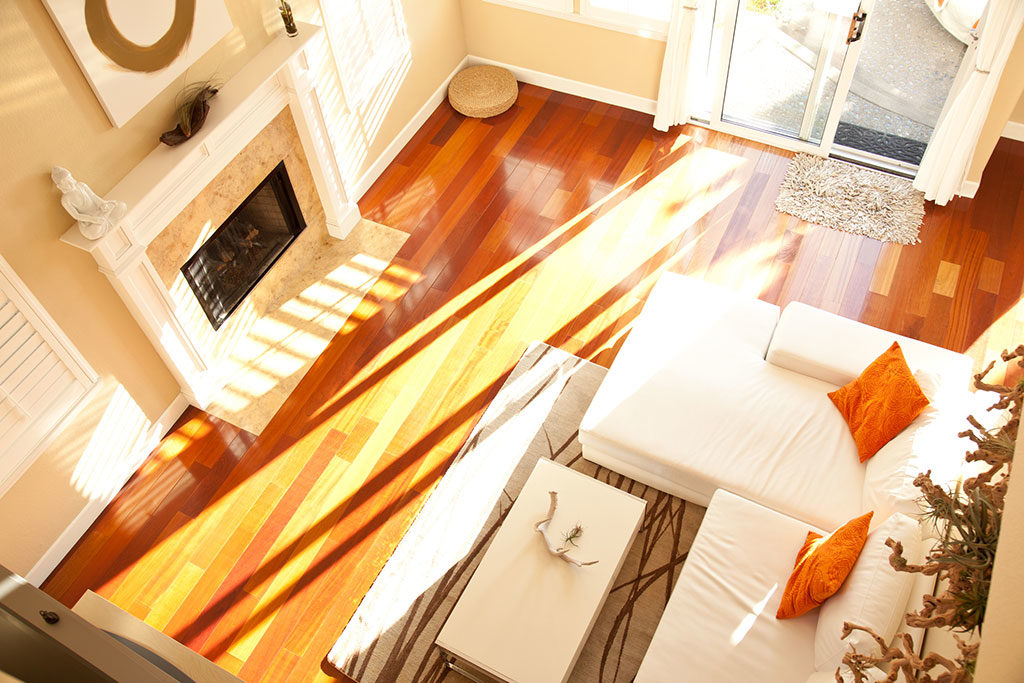
Ever looked at a ray of light streaming through your windows and noticed floating dust particles? The sunlight can reveal a lot about a room’s air quality. While it may be tempting to open up the windows and doors for a quick fix, we’re in the thick of ragweed season, so it probably won’t do you any favors. The EPA recommends upgrading your HVAC filter or using an air cleaner to reduce harmful airborne particles. Read our blog to learn why and discover some more indoor air quality solutions.
New filters
Your HVAC filter traps microorganisms, animal fur, hair, lint, dander, mold, pollen, dirt, and more so they don’t accumulate in your system or irritate your lungs. Check your filter once a month to see if it needs replacing. A clogged air filter can cause your HVAC equipment to overheat, short cycle, or even break down. At the very least, changing a dirty filter could lower your energy bills because your system won’t have to work twice as hard just to obtain adequate airflow.
Air cleaner
An air cleaner uses a filter to trap particles like bacteria, mold, ragweed, pet dander, and dust mites. It can even eliminate viruses, kill germs, neutralize fumes, and remove odors. Those with allergies, asthma, or sensitivity to chemicals can benefit from an air cleaner, which can remove up to 97 percent of pollen-sized particles.
Air exchanger
Every time you cook, shower, clean, and breathe, you release pollutants into the air. Airtight buildings are more energy efficient, but they need to somehow circulate air to maintain a healthy environment. Without adequate ventilation, old air will sit in enclosed spaces and accumulate dust, bacteria, mold, and other harmful particles.
An air exchanger provides refreshed, filtered air to reduce these allergens. Air exchangers use two fans, one to take stale air out, and the other to pull in fresh air, run it through a filter, and disperse it through the ductwork.
Dehumidifier
Humidity makes a room seem hotter than it is and increases the likelihood of mold and mildew growth. Drier air feels cooler. A dehumidifier can increase your comfort and allow you to raise the temperature a few degrees to save on cooling expenses. You can use a portable unit or install a whole house dehumidifier that works in conjunction with your HVAC system.
Dehumidifiers pull moist air over a cooling coil that condenses the moisture vapor into droplets. Moisture along the coils drips into a collection pan or directly down a drain.
Duct cleaning
In most HVAC systems, all the conditioned air passes through ductwork to supply vents in each room, and back through return registers to be conditioned again. Particles floating in the air could become trapped in the many channels and crevices behind your walls. If the ductwork is dirty, your indoor air will be, too, no matter what air cleaning accessories you install. During air duct cleaning, your technician will use powerful vacuums and brushes to dislodge debris and allow proper airflow.
Bonus tip
Plants clean the air of carbon dioxide and can remove cancer-causing formaldehyde, benzene, and other toxins. If you are looking for an inexpensive way to purify your indoor air, bring in some potted vegetation. They can improve your physical health as well as your mental well-being by reducing stress, building memory retention, and increasing concentration, which in turn boosts productivity.
At WestAIR, we care about you and your family’s health and comfort. We offer air quality solutions to rid your home or business of harmful pollutants and provide fresh oxygen, day in, and day out.
Contact us to learn more.
This entry was posted in Duct Cleaning,Indoor Air Quality,Tips and tagged Air circulation, Air cleaner, Air filters, Allergies, Asthma, Clean HVAC ducts, Comfortable, Cooling, Energy efficiency, Energy savings, Humidity, HVAC, HVAC tips, Indoor air quality, Indoor air quality solutions
HVAC Tips for Summer Trips
Posted on by WestAIR Heating & Cooling
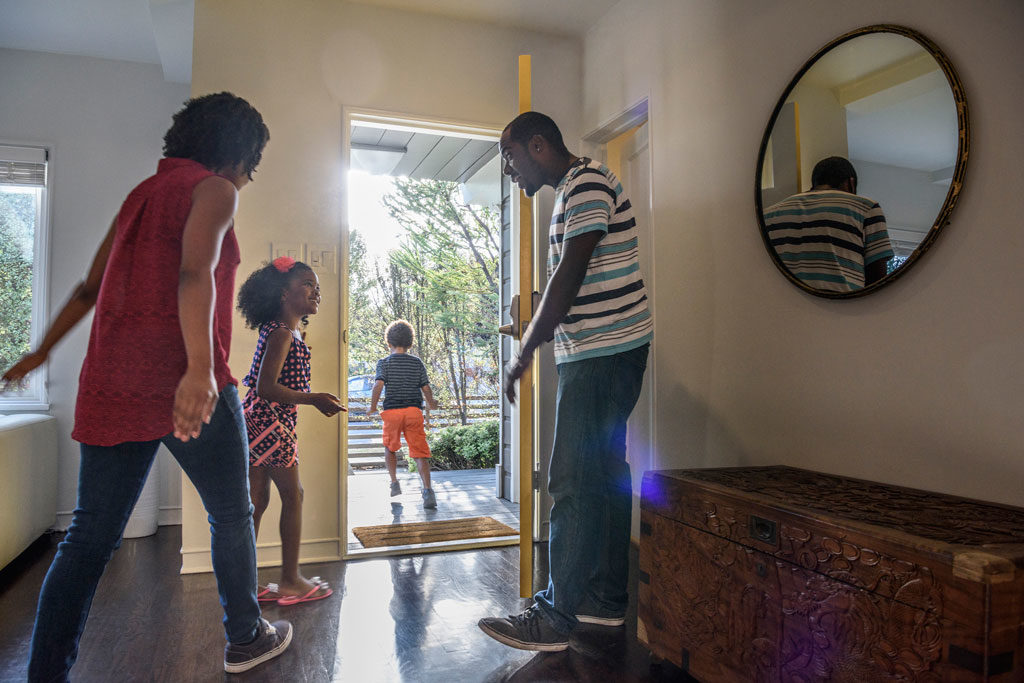
What exciting summer trips do you have planned? Before you pack up those bags and lock the door, take time to make sure your air conditioning will fare well while you are gone. Proper preparation will save you money on utility bills and keep your home’s air quality safe. So before you leave town, check out these HVAC tips for summer trips:
Don’t turn your HVAC system off
Many homeowners think they need to turn their cooling off to save money while they’re away in the summer. But you may end up spending more than you saved trying to cool your home back down when you return. An HVAC system doesn’t just regulate temperature, it also circulates air, controls humidity, and keeps indoor pollutants at bay. If you turn it off in the summer, humidity levels may rise, and you could come home to mold issues.
Program your thermostat
Before you leave, set the thermostat four degrees higher than your normal comfortable temperature, but keep it below 85 degrees. Check out the smart thermostats we offer with easy, seven-day programming and humidity control so you can rest assured your home is in good hands.
Prepare for rain
Install a full-house surge protector to save your system from power outages in case of a large summer storm or downed power lines. A surge protector will absorb the electrical overload and channel it into the ground so the power doesn’t damage your HVAC units.
Seal your home
Close all doors, windows, blinds, curtains, and storm shutters. Your home will stay cooler if you block the sun out, and conditioned air will remain inside if your home is sealed from the elements. Make sure supply and return registers are open so air circulates freely throughout the home.
Unplug
Unplugging electronics before you leave for vacation will help your system cool more efficiently. Some appliances still generate heat even if they aren’t being used. If you plan to be away for a significant amount of time, empty and unplug the refrigerator and turn down the water heater.
Give your equipment some attention
Even if you’ve just recently serviced your equipment, it’s important to check it before you leave it unattended. Replace the air filter if it’s dirty and clear the outdoor units of anything that would obstruct airflow. Pull away weeds, trim shrubbery, remove branches or twigs resting on the unit, and unclog the condensate drain if it is blocked.
Call WestAIR
Finally, schedule service so you don’t have to worry when you are states away enjoying vacation with your family. Our technicians will recharge the refrigerant if it’s low, clean the evaporator coils, and address any issues your air conditioning unit may have.
WestAIR Heating & Cooling provides cooling solutions to fit your home and budget. We offer energy-efficient A/C units, smart thermostats, filters, air cleaners, and more. Contact us today.
This entry was posted in Air Conditioning,Cooling,Tips and tagged A/C, A/C tune-up, Air circulation, air conditioning, Air filters, Comfortable, Cooling, Cooling system, Energy efficiency, Energy savings, HVAC, HVAC tips, Indoor air quality, Window curtains
Top Tips for Summer Cooling
Posted on by WestAIR Heating & Cooling
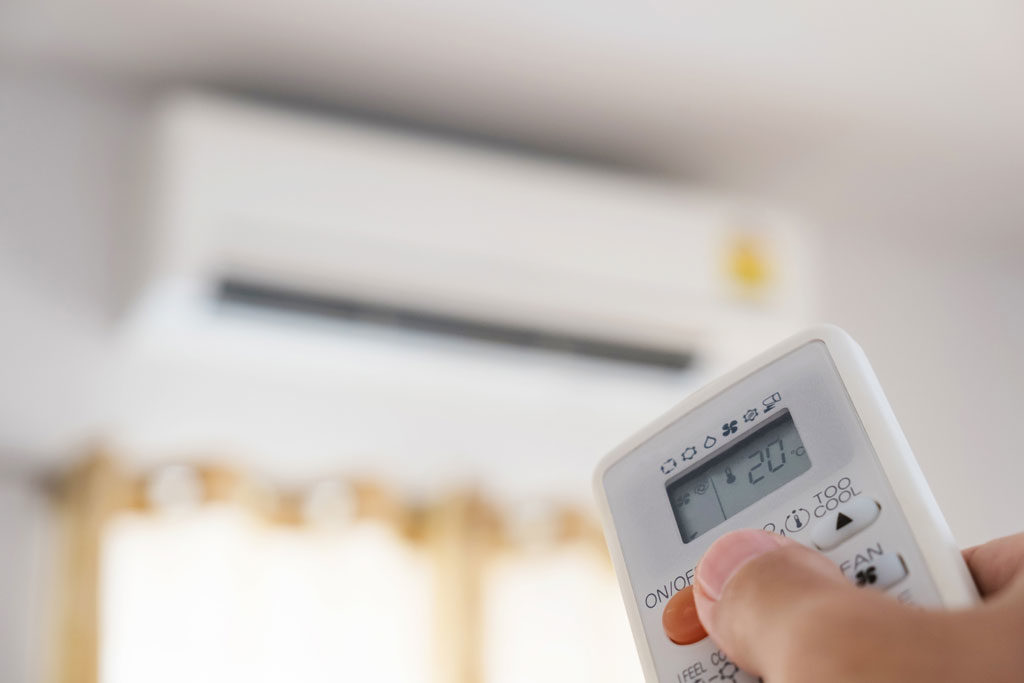
Warm weather is great for barbecues, days at the beach, and evening campfires, but not so great on your home’s cooling system. Some homeowners fight the urge to turn on their air conditioning, and others let it run, dreading their summer utility bills. Thankfully, there are options that will save you from the heat, give you peace of mind, and treat your pockets kindly. Here are some top tips for summer cooling:
Protect your home and equipment
Weatherizing your home isn’t just for winter. An air-tight system will save you money on cooling. Caulk your windows and doors so the cool air your system produces won’t escape. Up to 30 percent of home heat in the summer comes in through the windows. Use blinds, curtains, and drapes to block out the sun and keep daytime heat out.
Schedule maintenance with a qualified technician before the heat of summer. If you regularly service your HVAC equipment, it’ll last longer and run more efficiently. Proper DIY maintenance like keeping your outdoor unit clear of debris and regularly dusting your home will ensure dirt and dust don’t infiltrate your system and ruin your equipment. Check your filter once a month and replace as needed. If your air filter collects dust and debris, airflow will be restricted, and your unit will have to work harder.
Distribute air
Close off any unused rooms so you are only cooling the areas you use frequently, but make sure the rest of your home is well ventilated. Check that your supply and return registers aren’t blocked by furniture. Flip the switch on the motor housing of your ceiling fans to summer mode (counterclockwise). The blades will push the air straight down and create a wind-chill effect. Turn off your cooling system and open your windows in the evening to save money and provide your home with fresh air. Consider other indoor air quality solutions like an air exchanger or cleaner.
Avoid heat-producing appliances
Appliances that use heat can waste the cold air your cooling system produces. Instead of cooking in your oven, enjoy the outdoors by grilling more often. Air-dry your dishes and laundry instead of using the dishwasher and dryer. Take cool showers so your water heater won’t have to run as often. In addition, keep heat-producing appliances away from your thermostat so it reads the temperature accurately and doesn’t overcompensate.
If you’re still using incandescent light bulbs, replace them with LED lights. Incandescent bulbs create light by using electricity to heat up a filament until it glows. Ninety percent of the energy used to light up the filament is wasted on heat. LEDs create light through a cold process, producing little amounts of heat in comparison.
Take advantage of technology
According to the EPA, when used properly, a programmable thermostat can save you up to $180 a year in energy costs. With a programmable thermostat, you can set the temperature of your home higher when you leave for work or a trip and lower it shortly before you return.
Replace your old unit with a more efficient system. It may be more expensive up front, but a new air conditioner with a high SEER rating can give you maximum energy savings and reduce your carbon footprint. You’ll also enjoy peace of mind knowing your unit won’t likely break down on the hottest days of summer.
WestAIR Heating & Cooling provides energy-efficient Rheem A/C units, smart thermostats, filters, and other cooling solutions. We offer annual service maintenance and a variety of specials so you can save money and keep your HVAC system running smoothly. Contact us to learn more.
This entry was posted in AC,Air Conditioning,Cooling,Energy Savings and tagged A/C, A/C tune-up, Air circulation, Air cleaner, air conditioning, Air filters, Comfortable, Cooling, Cooling system, Energy efficiency, Energy savings, Grilling out, Hot days, HVAC, Indoor air quality, Indoor air quality solutions, Window curtains
How Indoor Air Quality Impacts Your Family’s Health
Posted on by WestAIR Heating & Cooling
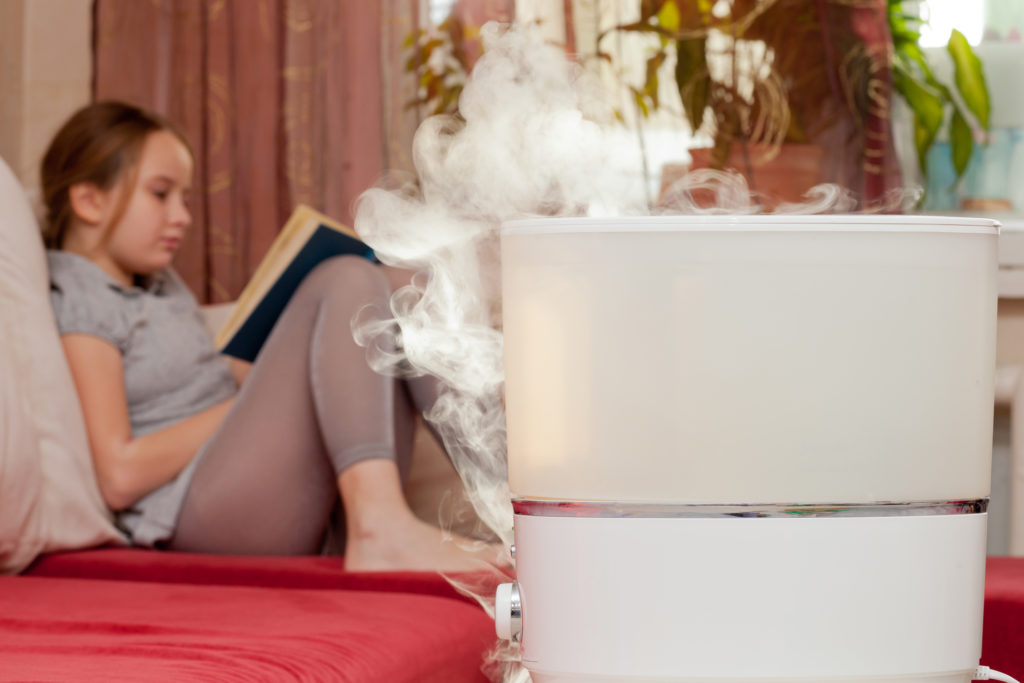 Humans inhale 11,000 to 15,000 liters of air per day. Most families spend more time in their home than anywhere else. Without proper ventilation, your indoor air could hold gases, chemicals, or other pollutants that can cause headaches, eye and skin irritation, allergies, asthma attacks, fatigue, and even cancer or long-term health complications. What’s even scarier? Ninety-eight percent of all airborne particles are below one micron (1/25,000 inch) in size and invisible to the naked eye.
Humans inhale 11,000 to 15,000 liters of air per day. Most families spend more time in their home than anywhere else. Without proper ventilation, your indoor air could hold gases, chemicals, or other pollutants that can cause headaches, eye and skin irritation, allergies, asthma attacks, fatigue, and even cancer or long-term health complications. What’s even scarier? Ninety-eight percent of all airborne particles are below one micron (1/25,000 inch) in size and invisible to the naked eye.
Imagine a toxic soup of pollutants constantly re-circulated throughout your home, through your respiratory system, and into your bloodstream.
The most obvious pollutants are secondhand smoke, radon, and carbon monoxide, but harmful airborne particles could come from any of the following:
- Gas, oil, kerosene, or wood stoves and fireplaces.
- Building materials like insulation, carpet, cabinetry, and pressed wood products.
- Personal care products and household chemicals like cleaning solutions, glues, and pastes.
- Pesticides, pollen, pet dander, hair, or other fibers.
- Dust mites, molds, and bacteria.
Children are more susceptible to all these things because their bodies are still developing. They breathe more air and eat more food in relation to their body weight than adults do. Properly maintained indoor air quality is especially important for people with asthma, allergies, chemical sensitivities, respiratory diseases, suppressed immune systems, or contact lenses. Here are some basic tips to make sure your home has clean, fresh air free of pollutants:
- Invest in a whole house humidifier or a smaller unit. The Mayo Clinic recommends you keep your home between 30 and 50 percent humidity.
- Make sure all vents are clear of obstructions and working properly.
- Have your ducts cleaned and change your furnace filter regularly (check it once a month).
- Buy a houseplant like a peace lily, dracaena, or garden mum to act as an air purifier.
- Use an exhaust fan when cooking, running the dishwasher, or bathing.
- Make sure gas stoves are well ventilated.
- Avoid smoking.
- Use craft supplies in well-vented areas.
- Minimize clutter.
- Remove carpeting if possible.
- Don’t wear outdoor shoes around the house.
- Keep the trash covered.
- Test your home for radon and use carbon monoxide detectors.
- Fix water leaks.
- Dust surfaces.
- Vacuum frequently, and open windows when you do.
- Wash bedding weekly.
- Keep a lid on scented candles when not in use.
WestAIR Heating & Cooling wants to help you live a healthier life with safe indoor air quality. We offer air exchangers, air cleaners, whole house humidifiers, replacement filters, and more to equip your HVAC system against contaminants. We also provide duct cleaning service so you can rest assured your air has clean, unobstructed passage throughout your home. Contact us to learn more.
This entry was posted in Duct Cleaning,Health Tips,Indoor Air Quality and tagged Air cleaner, Air filters, Duct cleaning, Dust, Filters, High efficiency electronic air cleaner, HVAC, Indoor air, Indoor air quality
Money-Saving Tips to Keep your Home Cool this Summer
Posted on by WestAIR Heating & Cooling
Have you switched your thermostat over to cool yet this spring? When the weather turns hot and sticky, you may be tempted to crank the a/c. Give yourself some peace of mind and follow these money-saving tips to keep your home comfortable this summer.
A/C Maintenance
Avoid an expensive breakdown during summer’s scorching hot days. HVAC technicians are working their peak seasons, so wait times could be longer than you’d like. Instead, schedule your a/c tune-up to keep your air conditioner working at top performance. Technicians will clean parts covered with dust and debris, fill coolant levels, tighten electrical connections, and more. You should always change your air filter every month during cooling (and heating months), too!
Thermostat
Program your thermostat this summer to the warmest comfortable temperature, and even warmer while you are away. However, while you’re away, don’t turn your air conditioner off on extremely hot days. The materials in your home will retain heat, so keeping the room cooler will make it easier for your air conditioner to run. On colder nights, you can turn off your cooling unit and open the windows. Then close them right away in the morning to trap the cooler air inside.
Windows
Use curtains and shades during the day to block direct sunrays from heating your home. Exterior awnings can reduce extra heat by up to 75 percent on west-facing windows! It’s also important to caulk or weather strip any drafty windows.
Air Circulation
Maintain maximum efficiency by inspecting your air ducts for any leaks. Keep cool air circulating in the right areas by closing doors and vents to any rooms not in use. Using an exhaust fan in bathrooms or kitchens also removes heat and moisture from your home, which helps prevent wall damage and mold.
Appliances
Save money on your electric and water bills by less frequent use of appliances that add heat to the house. Avoid using the oven by preparing cold meals or grilling outside on hot days. Air-dry your dishes and laundry. Your water heater is another culprit for extra heat, so try taking shorter and cooler showers on warm days as well.
Plant trees
Planting tall trees can cool your house naturally. Suburban and urban areas are warmer than rural ones because of the heat absorbed by roads, buildings, and parking lots. Planting tall trees to block windows can save you up to 35 percent annually on energy costs while keeping your home cooler and giving your yard extra curb appeal.
Contact WestAIR Heating & Cooling for your annual a/c tune-up and personalized suggestions to keep your home comfortable this summer!
This entry was posted in AC,Air Conditioning,Cooling and tagged A/C maintenance, A/C tune-up, A/C tune-up, Air circulation, Air conditioner maintenance, Air conditioner tune-up, Air ducts, Air filters, Comfortable, Cooling system, Energy efficiency, Exhaust fan, Grilling out, Heating and cooling, Hot days, Humid days, HVAC technician, Plant trees, Summer days, Thermostat, Tune-up, Window curtains, Window shadows, Window tips
Subscribe to Our Blog
With RSS feeds, you don't have to visit our site everyday to keep up to date. Simply subscribe to our blog via RSS or Email and our posts will come to you!
Search Blog Posts
Categories
Archives
- April 2024 (1)
- February 2024 (1)
- January 2024 (1)
- February 2023 (1)
- January 2023 (1)
- December 2022 (1)
- November 2022 (1)
- October 2022 (1)
- September 2022 (1)
- August 2022 (1)
- July 2022 (1)
- June 2022 (1)
- May 2022 (1)
- April 2022 (1)
- March 2022 (1)
- February 2022 (2)
- December 2021 (1)
- November 2021 (1)
- October 2021 (1)
- September 2021 (1)
- August 2021 (1)
- July 2021 (1)
- June 2021 (1)
- May 2021 (1)
- April 2021 (1)
- March 2021 (2)
- January 2021 (1)
- December 2020 (1)
- November 2020 (1)
- October 2020 (1)
- September 2020 (1)
- August 2020 (1)
- July 2020 (1)
- June 2020 (1)
- May 2020 (1)
- April 2020 (1)
- March 2020 (1)
- February 2020 (2)
- November 2019 (1)
- August 2019 (2)
- June 2019 (1)
- May 2019 (1)
- April 2019 (1)
- March 2019 (1)
- February 2019 (1)
- January 2019 (1)
- December 2018 (1)
- November 2018 (1)
- October 2018 (1)
- September 2018 (1)
- August 2018 (2)
- July 2018 (1)
- May 2018 (1)
- April 2018 (1)
- March 2018 (1)
- February 2018 (1)
- January 2018 (1)
- December 2017 (3)
- November 2017 (2)
- October 2017 (2)
- September 2017 (2)
- August 2017 (1)
- July 2017 (2)
- June 2017 (3)
- May 2017 (2)
- January 2017 (4)
- November 2016 (1)
- September 2016 (3)
- July 2016 (2)
- June 2016 (2)
- May 2016 (4)
- April 2016 (1)
- March 2016 (2)
- February 2016 (2)
- January 2016 (1)
- August 2015 (1)
- July 2015 (1)
- June 2015 (3)
- May 2015 (1)
- July 2014 (2)
- June 2014 (1)
- April 2014 (1)
- March 2014 (1)
- February 2014 (2)
- October 2013 (1)
- May 2013 (1)
- March 2013 (1)
- February 2013 (1)
- August 2012 (1)
- July 2012 (2)
- June 2012 (2)
- May 2012 (2)
- March 2012 (1)
- February 2012 (1)
- December 2011 (1)
- November 2011 (1)
- October 2011 (1)
- September 2011 (1)
- August 2011 (1)
- June 2011 (1)
- May 2011 (1)
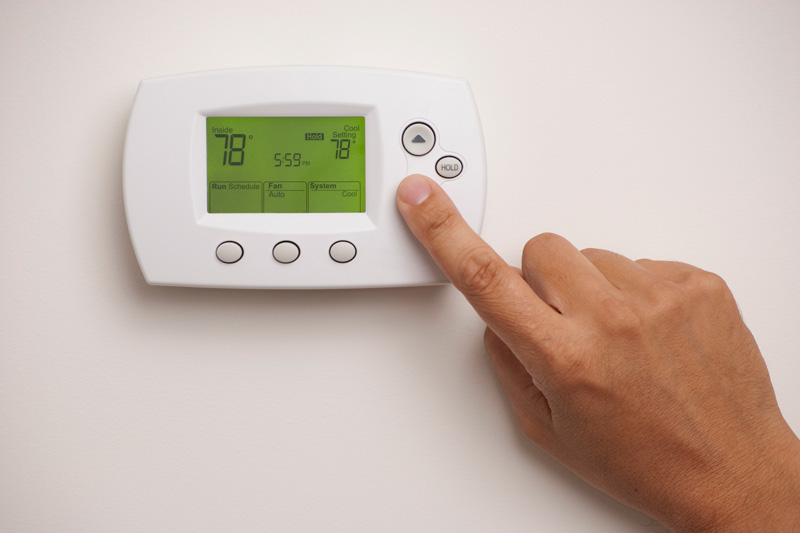
 Subscribe
Subscribe Subscribe
Subscribe